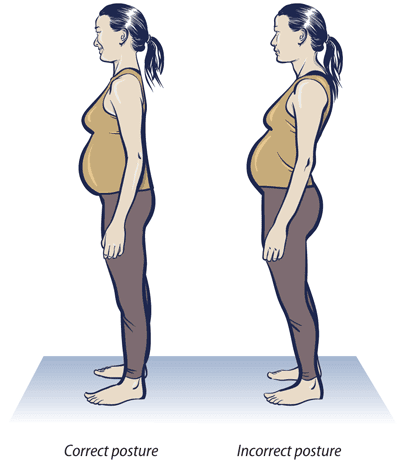Maintaining Pelvic Health Throughout Pregnancy
Maintaining Pelvic Health Throughout Pregnancy

Introduction
Pregnancy is a transformative journey that brings about numerous changes in a woman's body, and among the key areas to focus on is pelvic health. As the body adapts to accommodate the growing baby, maintaining proper posture becomes paramount. In this detailed blog post, we will explore the significance of posture in promoting pelvic health throughout pregnancy, providing insights and practical tips for expectant mothers to foster a comfortable and well-supported journey.
Understanding the Impact of Pregnancy on Posture:
Altered Center of Gravity:
As the uterus expands and the baby grows, the center of gravity shifts forward, affecting overall balance. This alteration in balance can lead to changes in posture to accommodate the added weight in the abdominal area.
Weakening of Core Muscles:
Hormonal changes during pregnancy, particularly the increased production of relaxin, can lead to a softening of ligaments. This, coupled with the expanding belly, can weaken the core muscles that play a crucial role in maintaining proper posture.
Changes in Spinal Curvature:
The spine undergoes natural curves, and as the baby grows, these curves can be influenced, potentially leading to an increased curve in the lower back (lordosis) or rounding of the upper back (kyphosis).
Pelvic Floor Pressure:
The growing uterus exerts pressure on the pelvic floor muscles. Poor posture can exacerbate this pressure, potentially contributing to issues such as pelvic floor dysfunction or discomfort.
The Importance of Good Posture During Pregnancy:
Supporting the Spine:
Maintaining good posture helps distribute the weight of the growing baby evenly, reducing strain on the spine. This, in turn, supports the natural curves of the spine and minimizes discomfort.
Alleviating Back Pain:
Proper posture can alleviate or prevent back pain, a common complaint during pregnancy. By aligning the spine correctly, expectant mothers can reduce the strain on the back muscles.
Enhancing Breathing: Correct posture allows for optimal lung expansion, ensuring that the mother receives adequate oxygen and promoting the baby's well-being.
Practical Tips for Maintaining Pelvic Health Through Good Posture:
Pelvic Tilt Exercises:
Incorporate pelvic tilt exercises into your routine to strengthen the muscles that support the pelvis. Stand against a wall, gently tuck your pelvis, and press your lower back against the wall.
Kegel Exercises:
Kegels are not only beneficial for pelvic floor strength but also for maintaining good posture. These exercises engage the pelvic floor muscles and contribute to overall core stability.
Balanced Standing:
When standing, distribute your weight evenly on both feet, keeping them hip-width apart. Avoid locking your knees, and engage your abdominal muscles to support your lower back.
Sitting Posture:
Sit on a chair with good lumbar support, keeping your feet flat on the floor. Use a cushion or small pillow to support your lower back if needed. Avoid crossing your legs to maintain proper circulation.
Pregnancy Pillows:
Invest in a pregnancy pillow to support your body while sleeping. These pillows can help maintain a side-lying position, reducing strain on the back and hips.
Regular Breaks:
If you have a desk job or spend extended periods sitting, take regular breaks to stand, stretch, and walk around. This helps prevent stiffness and promotes better circulation.
Footwear Matters:
Opt for comfortable and supportive footwear. As the body undergoes changes, wearing shoes with proper arch support can contribute to maintaining good posture.
Prenatal Yoga and Exercise:
Enroll in prenatal yoga or exercise classes that focus on posture, flexibility, and strength. These classes are tailored to the needs of pregnant women and provide valuable guidance.
Mindful Movement:
Be conscious of your movements throughout the day. Avoid sudden, jerky motions and prioritize smooth, controlled movements to protect your joints and muscles.
Conclusion:
Maintaining good posture is a fundamental aspect of promoting pelvic health throughout pregnancy. By incorporating practical tips and exercises into your daily routine, you can support your changing body and reduce the risk of discomfort or complications. Remember that every pregnancy is unique, so listen to your body and consult with your healthcare provider for personalized guidance on maintaining pelvic health through proper posture. Embrace the journey with confidence, knowing that your commitment to pelvic health contributes to your overall well-being and the well-being of your growing baby.


